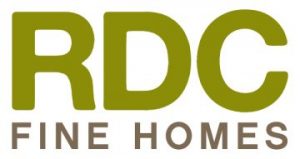In recent years, British Columbia has seen an unprecedented construction boom. Cranes dot skylines around our province, while construction firms race to build higher and build faster. Amid this hard-hat clad sprint, RDC Fine Homes’ Founder and President, Bob Deeks, continues to do things differently.
Deeks wears many hats in his professional life. Alongside his duties at RDC, he’s co-vice chair of the Energy Step Code Council, a member of Code Canada’s Standing Committee for Energy Efficiency, and Chair of the Canadian Home Builders Association’s Net Zero Energy Ready Housing Council. Sustainability is a foundational element of his business life, informing his focus on working with clients that wanted to build or renovate healthy, sustainable and well-designed homes that would stand the test of time.
Supporting Trades in Our Province
Founded in 1993, RDC Fine Homes has long been a champion for trades and apprenticeships in British Columbia. This dedication was lauded at the 16th Annual Small Business BC Awards as they clinched the Best Apprentice Training Award at a packed Vancouver Convention Centre.
Sustainability isn’t just about being energy efficient or reducing waste. Deeks views sustainability as a holistic concept that extends to his own people:
“Participating in the Small Business BC Awards allowed us to take a close look at what we were doing,” he explained.
“It’s like an evaluation; what are you doing and how are you doing it? We highlighted an area I feel we’re strong in – our commitment to apprenticeship training. The fact we have 12 apprentices, that we are getting financial support for (through provincial job grants), that we include staffing strategies within our long-term strategic plan, and how we choose to manage safety.”
Responding to Challenges
From their home base in Whistler, RDC Fine Homes have been on the front lines of one of our province’s biggest challenges – the need for affordable housing. As a world class destination resort Whistler housing is hard to come by. The situation even prompted the mayor’s office to create a task force to address the problem. Unfortunately, it’s a reality all Whistler businesses must contend with.
“Local staffing is hard to find, and it’s expensive,” said Deeks.
“We see a high rate of turnover as a result of people not being able to find a comfortable place to live. Our pay scale for apprentices is extremely competitive, ranging from the low $20s to the low $30s. It’s tied to the level of their training.”
Fighting for Sustainability
Bob Deeks is passionate about sustainability. In the coming years, RDC Fine Homes will look to find new efficiencies and retain their position as one of Canada’s leading sustainably-minded construction firms. Though businesses like his are small in stature, Deeks believes they can play a pivotal role in the fight against climate change:
“Since buildings contribute 17 percent of Canada’s greenhouse gas emissions, we simply won’t meet our Paris Climate Agreement commitment without bold action on efficiency,” he explains.
“Though they are more expensive, higher-performing buildings will do more than just fight climate change. A growing body of evidence demonstrates that they improve productivity and health as they circulate more fresh air to those who live, work and learn in them.
“I believe regulations can be a fair and effective way to improve building performance in one fell swoop. The Canadian Commission on Building and Fire Codes – established by the National Research Council – concluded years ago that energy efficiency requirements in codes can influence up to 81 percent of energy use in houses and up to 68 percent in other buildings.
“To reach our net-zero energy-ready target, policy-makers will need to establish fair, predictable, and clear energy performance metrics and benchmarks. Through computer simulations and real-world air-tightness testing, builders will have to demonstrate that their projects will meet those thresholds.”



